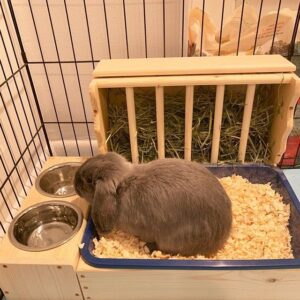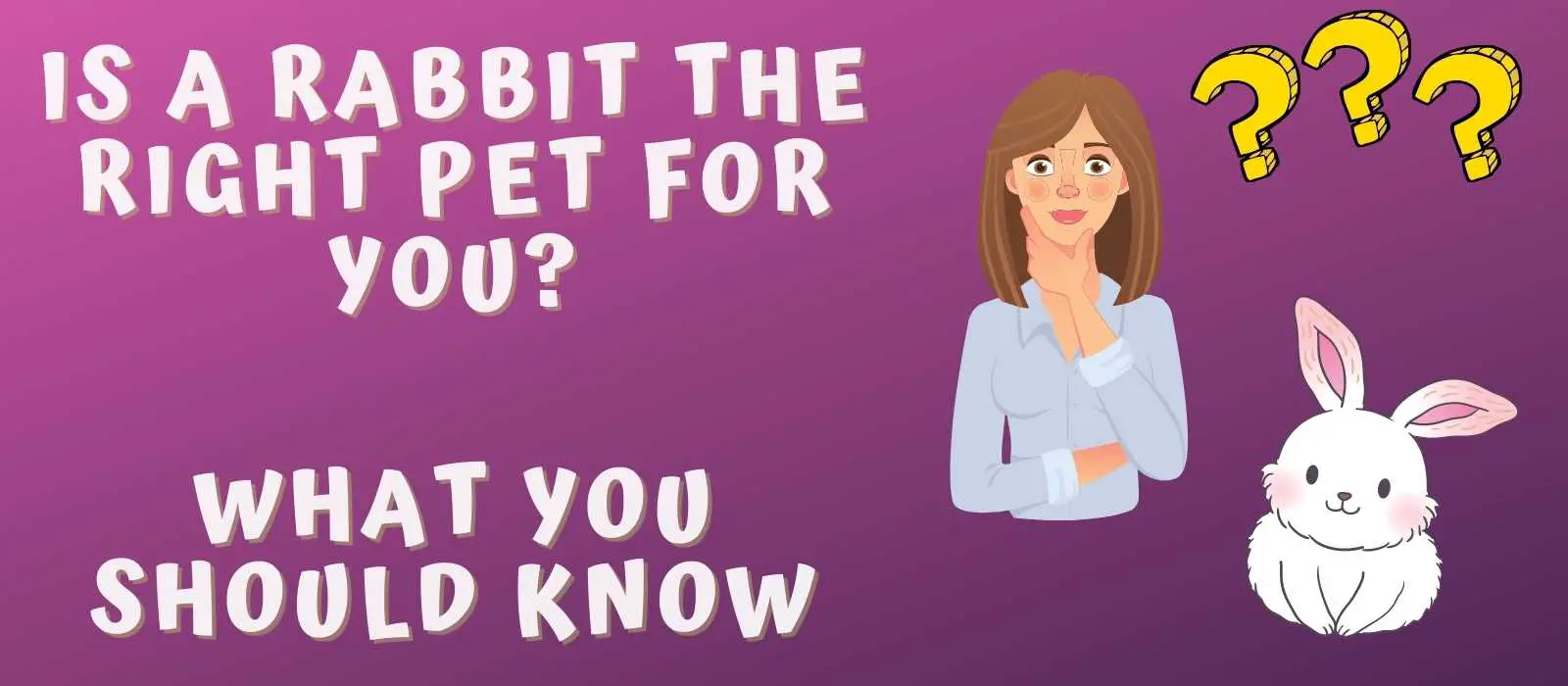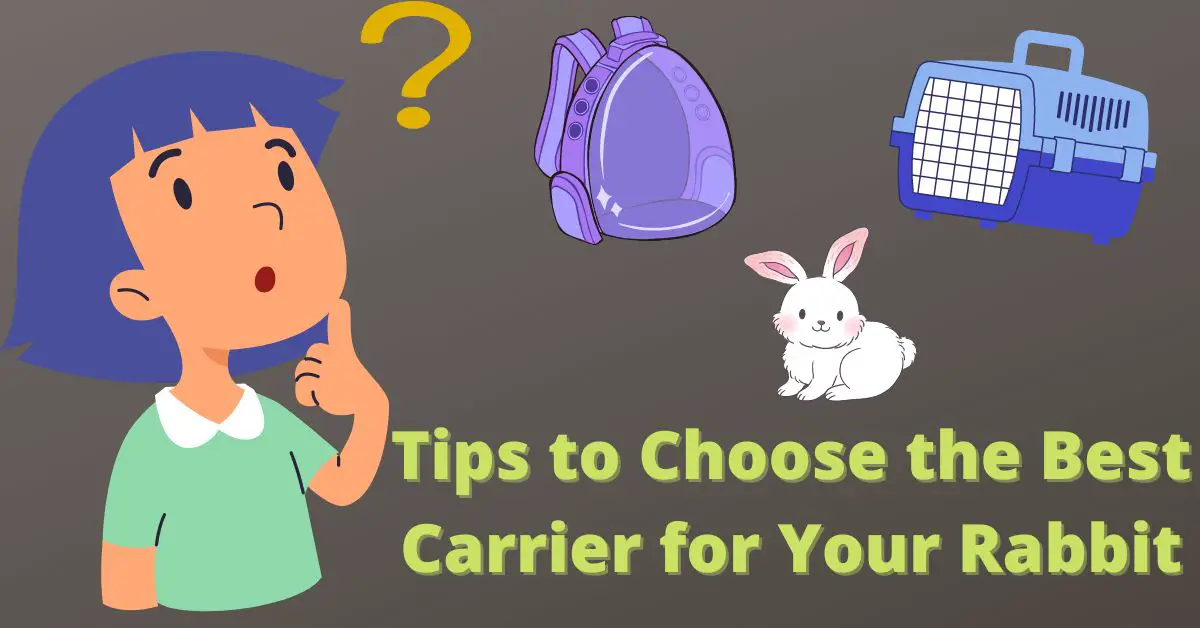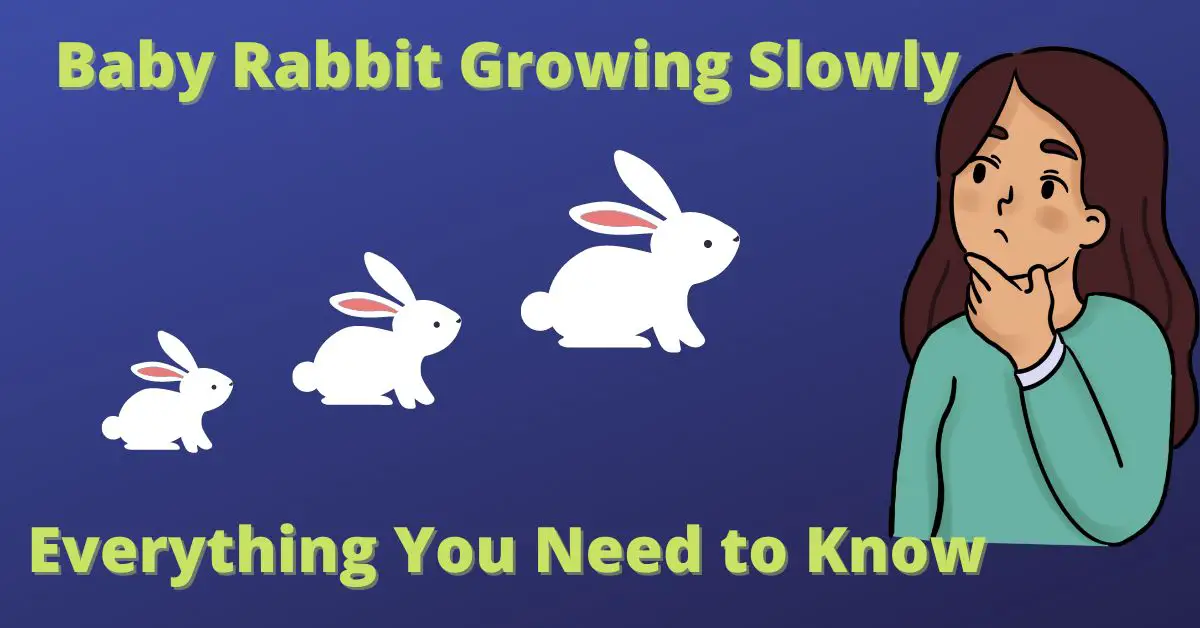
If you’ve been contemplating adding a new pet to your family, a rabbit may have crossed your mind as a potential furry friend.
A lot of people assume that a rabbit is going to be a low to no-maintenance pet because they don’t require a lot of the other things that a dog or cat does.
You don’t have to walk a rabbit around the block and they don’t have to be trained to not bark or jump when a visitor comes around, but there is still a lot of care that goes into having a happy and healthy bunny under your roof.
Is a Rabbit the Right Pet for Me?
Rabbits have the potential to be very loving, sociable, and intelligent pet as long as you get to know your new rabbit and understand their needs.
Rabbits possess a great deal of personality, and they’re quite intelligent. Some of the benefits of owning a rabbit include the following.
Rabbits are Very Quiet
Rabbits have a few sounds that they make when they’re very happy or a bit irritated, but they’re very quiet, especially when you compare them to an animal like a dog. The most you’ll experience is a little bit of foot thumping when your rabbit is trying to alert you of something.
You won’t be woken up during the night by them meowing at you for a snack either. If you live in an apartment or rental that doesn’t allow dogs or cats, you may be able to get permission for a rabbit that won’t be a nuisance to your neighbors.
Rabbits Can Be Litter Trained

Rabbits have the tendency to produce a lot of poop over the course of a day, but they’re pretty easy to clean up after if you’ve trained them to use a litter box. We’re not talking about a large box that you’d have in your bathroom for a cat.
But a small area near the corner of their habitat with plenty of hay placed near it will suffice.
Rabbits like to live in a clean area just as much as you do, so they’ll head to their set corner for bathroom breaks with a little bit of coaxing. Even if you’re letting them roam around the house, they will head back to their cage to use their litter box.
Low Odor
You’d be surprised how much some small animals can smell up your house, especially mice or hamsters. Rabbits are very clean, and they produce very little odor if you keep their cage clean.
Their bodies don’t produce a strong smell, but their urine does have a high amount of ammonia in it. Scooping once or twice per day is all that’s needed to keep everything clean and odor-free.
The Life Expectancy of a Rabbit
A lot of small animals don’t live longer than a few years, but a rabbit that is living its life as a pet can live for approximately 10 years. Of course, this time frame can vary based on the breed of rabbit that you have.
Seeing as how a rabbit can live for a decade, you’ll want to make sure that you’re committed to your pet. The goal of adopting an animal should be to provide them with a safe and loving home for their entire lifetime.
Rabbits are Social by Nature
A rabbit that is living as a pet will be very comfortable coming around you and other people that are in your home. In fact, rabbits are known for letting you know when they want attention. They’ll find you if they’re in the mood for treats or being pet. They may even follow you from room to room so they can stay aware of what you’re doing.
When it comes to affection, rabbits can curl up in your lap, lick you and even run in circles to show how excited they are that you’re around.
Is a Rabbit the Right Pet for Me? The Challenges You Need to Consider

As with any pet, you may encounter some challenges once you’ve brought your rabbit home. If you’re dedicated to making this work, then you’ll face those challenges as they come.
Some people just don’t have the time, money, or patience that they need to be a rabbit owner, and the situation doesn’t end up working out. Let’s look at some of the downsides of rabbit ownership.
Rabbits Like to Chew
Over time, a rabbit’s teeth will continue to grow. They’re a lot like human fingernails and toenails. In order for a rabbit to keep their teeth at a comfortable length, they will chew on things that will wear the teeth down.
It’s really important that you provide a rabbit with appropriate items to chew on, otherwise, they will turn to your furniture and other personal items. You also need to go through your home to ensure that there aren’t items that your rabbit could chew on that would be dangerous to them, such as power cords.
While it’s nice to give your rabbit free roam of the house, you’ll need to put some effort into supervising them and changing things in the home that pose a threat.
Rabbits Don’t Enjoy Being Held in Your Arms
While you can have a very sociable and friendly rabbit as your pet, the majority of rabbits don’t like to be held. If you’re looking for a pet to carry around with you when you’re home, there may be better options out there.
This doesn’t mean that your rabbit won’t want to be touched or sit in your lap, but your arms may be their least favorite spot to be.
Is a Rabbit the Right Pet for Me With the Space I Have?
If you live in a small home with no outdoor living space, you may want to forgo adopting a rabbit. A rabbit needs a good deal of space to roam and explore.
It’s recommended that your rabbit have eight square feet of enclosed space to live in, along with 24 square feet of space to exercise and play in. When it comes to space requirements, a rabbit is much more similar to a cat or dog than they are to a hamster or guinea pig.
Rabbits Require Attention
Interaction with your rabbit is necessary on a daily basis. Even if you have another rabbit or another pet that they interact with, they need human attention from their owner. If you’re gone at work for the day, you’ll need to set aside time each evening to pay attention to your rabbit.
This includes play, affection, treats, etc. If your rabbit becomes bored because they’re not getting enough attention, this can lead to your rabbit displaying behavioral issues. They could also become depressed and lose interest in the things that normally make them very happy.
The Importance of a Healthy Diet

Rabbits don’t survive off of pre-purchased kibble food. They actually have a very sensitive digestive system that needs to remain in a healthy balance in order for them to feel their best.
If a proper diet isn’t being followed, digestive issues like a slow gastrointestinal process can occur. In some cases, their gut can even shut down completely, which results in death.
80% of your rabbit’s diet should include hay. Essentially, they need an unlimited supply at all times, and the hay must be fresh. One to two cups of leafy greens is required each day, with pellets being fed in quantities of about ¼ to ½ cup each day. Treats should only be provided on occasion.
Additional Rabbit Expenses
Owning a pet rabbit can be a big expense, and many people don’t really add up what this investment is going to cost over the course of a rabbit’s life. In addition to adopting the rabbit, you’ll need to factor in other things like:
Vet Care

Routine physicals can help ensure that your rabbit is healthy and doing well, but there may come a time in their life when they are sick or displaying abnormal behavior.
You may need to schedule an unexpected vet visit, and your rabbit may even need to take medication for a specific amount of time.
Not all veterinarians will care for your rabbit, and you may need to find a small animal hospital or office in your area that can be a bit more expensive than your traditional vet.
Homing Supplies
Your rabbit will need an enclosure (base) where it can safely sleep and be kept when you’re not around. You’ll need bedding material, hay, litter, etc. Many of these items will need to be replaced as needed.
Food
We talked a bit about what rabbits need as part of a healthy diet. Their fresh foods will be a weekly expense.
Toys
Your rabbit will benefit from a collection of new toys periodically. You want to keep your rabbit interested and exploring to keep them happy.
If these expenses are worth the investment of a rabbit, then a rabbit may very well be the pet for you. It’s just nice to know upfront what you are going to need to invest in so the cost of your new pet isn’t a shock after a few months.
Conclusion
Now that you’ve read this information, hopefully you can make an educated decision regarding whether or not a rabbit is a right pet for you. They do have some strict needs when it comes to their diet, socialization and care, but they also provide a great deal of companionship.
If you’re still on the fence about the potential for adopting a rabbit and wondering is a rabbit the right pet for me, you can speak with other rabbit owners or a trusted veterinarian in your area. You can never research a new pet too much!
YouTube Video About – Is A Rabbit The Right Pet For You
Read more about this topic
Rabbit.org – Are You a Rabbit Person? Is a Rabbit the Right Pet For You?





